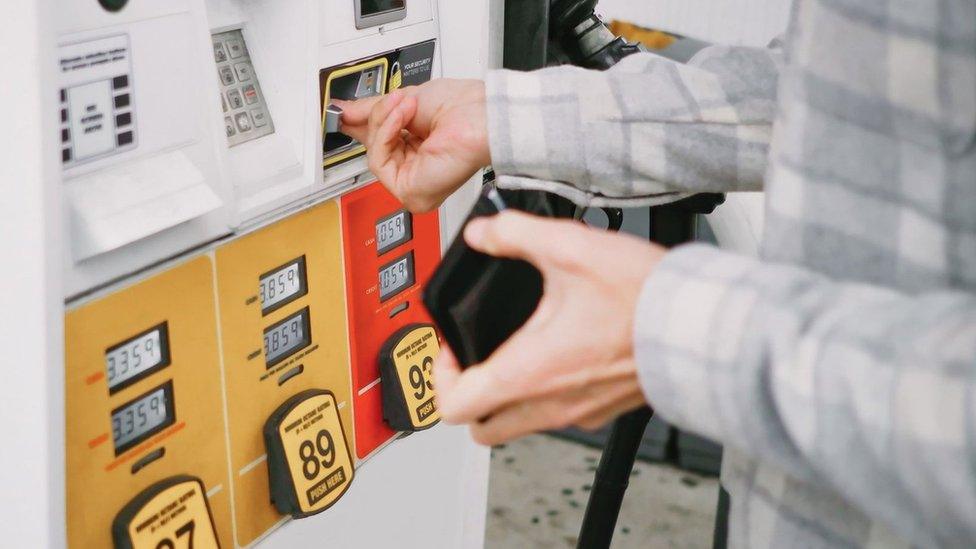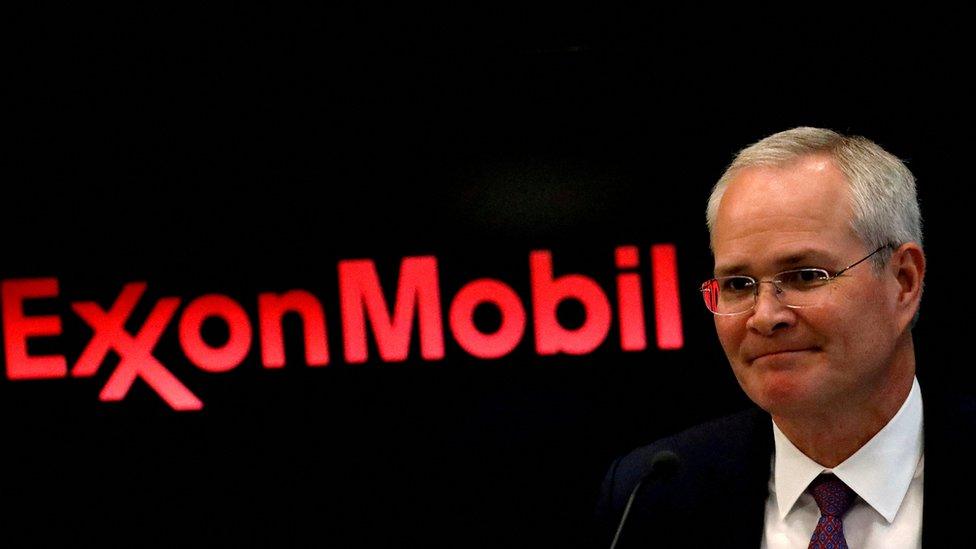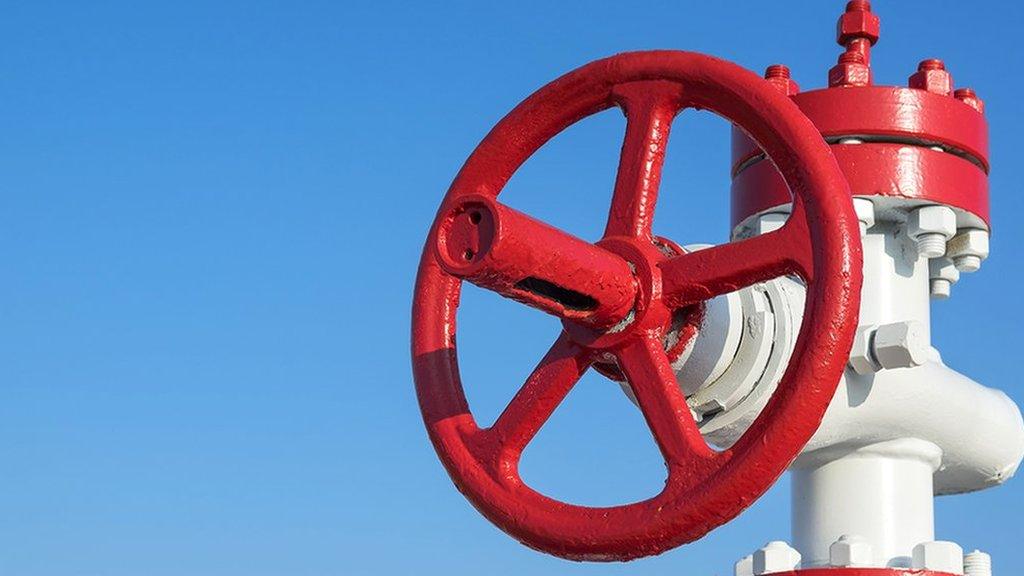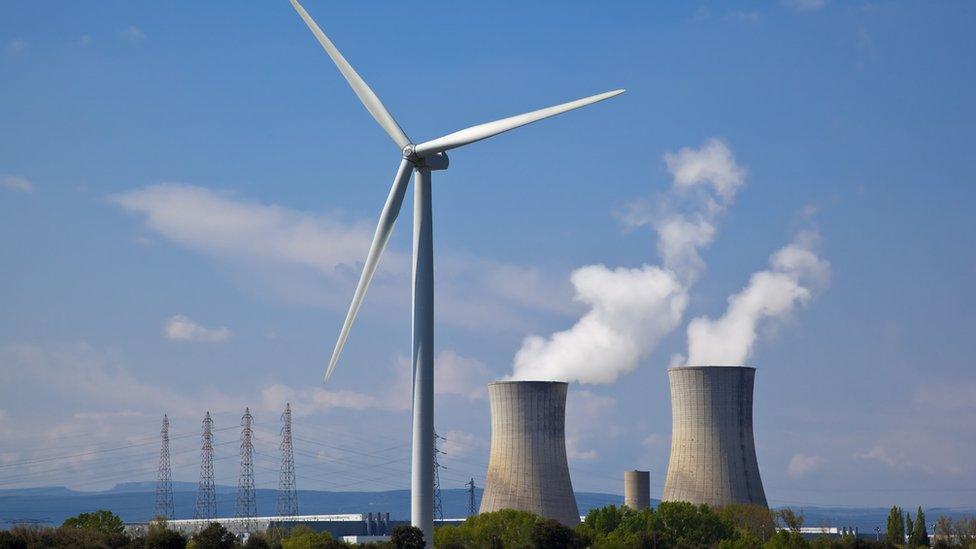Oil bosses vow to boost output and deny profiteering
- Published

Oil prices are about 70% higher than they were a year ago
The bosses of some of the world's biggest energy firms vowed to increase production this year as they defended themselves from accusations of profiteering from the war in Ukraine.
Chiefs at ExxonMobil, Chevron and others said in Washington that they had little power over oil prices, which have soared after Russia's invasion.
Prices remain more than 15% higher than they were at the end of January.
The increase has raised energy costs for households around the world.
In the US, where mid-term elections will be held in November, it has also become a major political issue, weighing on President Biden's support.
The US and other members of the International Energy Agency (IEA) have repeatedly tapped reserves to alleviate the crisis.
Just last week, the US pledged to release 180 million barrels of oil over the next six months, while the IEA announced on Wednesday that other members would release a further 60 million barrels from storage.
But energy executives at the congressional hearing warned that there was "no quick fix" to the problem.
They said their investments, many already in the works, will raise output this year, but warned that staffing and supply issues stemming from the pandemic meant it is taking longer to start new production.
"What can be done to ensure vital energy products remain available and affordable?" asked Darren Woods, chief executive of ExxonMobil.
"While there is no quick fix, the answer in the near-term, until there are more widely available and affordable alternatives, is straightforward. We need to increase the supply of oil and natural gas."
How much have oil prices gone up?
Energy prices were already increasing before Russia's invasion, as firms struggled to respond to disruption from the pandemic, which prompted a dramatic collapse in demand in 2020, followed by a faster-than-expected rebound.
Following Russia's invasion, Western allies hit the country with severe sanctions, disrupting oil markets and raising concerns about their supplies.
The country is the world's second-largest exporter of crude oil, accounting for about 10% of global output.
Oil prices are up roughly 70% from a year ago, accelerating in recent months.


Doreen Aniakor has picked up extra work due to rising costs
New Yorker Doreen Aniakor says the dramatic rise in petrol prices means her car now costs $100 (£76.50) to fill. In response, she has stopped filling her tank in one go and started cutting off the engine at red lights to save fuel.
The 36-year-old, who works as a dental assistant and for hospitals, also recently picked up a fourth part-time job. She now delivers groceries for Instacart in an effort to cover the extra costs.
"In this day and age, you just do what you got to do," she said, "I have to figure out sometimes how to eat... It's ridiculous."

At the hearing, Democrats said oil firms were "lining their own pockets" as petrol prices have not fallen as rapidly as oil, noting the rise in profits since 2022.
"At a time of record profits, Big Oil is refusing to increase production to provide the American people some much needed relief at the gas pump," said Rep. Frank Pallone, a Democrat from New Jersey.
Democrats pressed energy firms to halt stock buybacks and said the energy crisis should spur a faster turn to greener energy sources.
Republicans blamed policies backed by President Joe Biden for the higher costs, accusing him of an "assault" on the US energy industry with actions such as halting oil and gas leases on public lands.

Exxon said there was no "quick fix" to higher energy prices
"High gas prices are a feature of President Biden's policies, not a bug," said Rep Cathy Morris, a Republican from Washington. "Why? They want to usher in a green revolution."
After questioning by Republicans, some executives said in their testimony that Mr Biden's push for green energy alternatives was chilling investment.
But some executives said over the long-term, investing in green energy was a key way to stopping these kinds of energy shocks in the future.
Related topics
- Published26 January 2023

- Published30 January 2022

- Published23 February 2024
